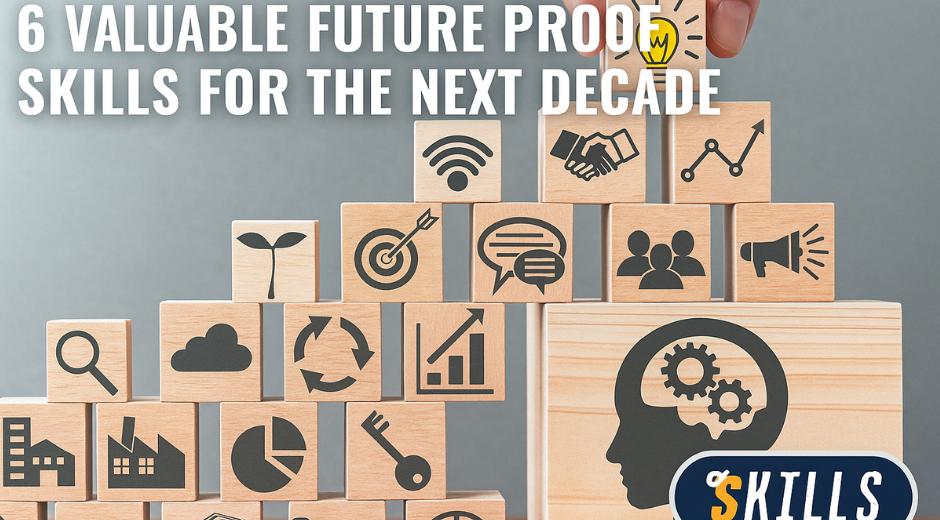Soft Skills: How to Master Both Soft vs Hard Skills for Success
Balancing soft skills and hard skills is essential for achieving success in today’s competitive world. While hard skills provide technical expertise, soft skills enhance communication, leadership, and adaptability. This guide will help you understand both skill types and offer practical ways to master them for personal and professional growth.
1. Understanding Soft Skills vs Hard Skills
Soft skills refer to interpersonal, communication, and emotional intelligence abilities, while hard skills are specific, teachable technical skills. Understanding the difference is the first step to mastering both. Soft skills include teamwork, empathy, time management, and problem-solving, whereas hard skills cover coding, accounting, scientific research, and data analysis. Recognizing where each applies allows you to strategically improve your overall effectiveness in both academic and professional environments.
For example, a software developer may have excellent coding abilities (hard skills) but struggle to explain their ideas clearly in a team setting. Strengthening soft skills in communication and collaboration ensures that technical expertise is utilized effectively and contributes to meaningful outcomes.
2. Importance of Soft Skills in Modern Careers
Developing strong soft skills is increasingly important in professional settings. Employers value communication, adaptability, and problem-solving as much as technical expertise. Soft skills help you collaborate effectively, manage conflicts, and stand out in leadership roles. Professionals with well-developed soft skills often advance faster because they can work well in teams, adapt to unexpected challenges, and influence outcomes positively. Learn more about their importance at Forbes.
Soft skills also impact networking opportunities, job satisfaction, and career longevity. People with empathy, active listening, and negotiation abilities build stronger relationships with colleagues, clients, and mentors, giving them a competitive edge in any field.
3. Mastering Hard Skills Effectively
Hard skills are critical to your professional foundation. Courses, certifications, and hands-on projects help develop these skills. For instance, learning software development, graphic design, financial analysis, or project management requires consistent practice and measurable progress. Platforms like Coursera, Udemy, and LinkedIn Learning provide structured learning paths that allow students and professionals to track their development and earn credentials that are recognized globally.
Additionally, staying updated with the latest tools and technologies in your industry ensures your hard skills remain relevant. Combining ongoing learning with practical application guarantees that you are prepared for real-world challenges and can leverage your expertise effectively.
4. Enhancing Soft Skills Daily
Improving soft skills requires practice and reflection. Engage in active listening, join group projects, volunteer for leadership roles, and seek feedback. Mindfulness and emotional intelligence exercises also boost communication, empathy, and conflict resolution, making you more effective in personal and professional interactions. Regular practice in real-world situations is key to embedding these skills into your behavior.
Simple daily exercises, such as summarizing conversations, practicing public speaking, or journaling reflections on interpersonal interactions, can significantly strengthen soft skills over time. The key is consistency and being intentional about learning from experiences.
5. Integrating Soft and Hard Skills
Mastering both skill types involves integration. Apply hard skills in real-world scenarios while leveraging soft skills for teamwork, presentations, or client interactions. For example, a software engineer uses coding (hard skill) alongside collaboration, problem-solving, and clear communication (soft skills) to deliver successful projects. Explore practical tips on integration at MindTools.
Similarly, an accountant may excel at financial analysis but struggles with client presentations. By integrating soft skills such as storytelling, persuasion, and empathy, their hard skills can have a stronger impact and lead to better business outcomes.
6. Continuous Learning and Feedback
Consistent improvement is key to mastering soft skills and hard skills. Seek feedback from mentors, peers, and supervisors, and identify areas for growth. Regularly updating your skill set ensures you remain competitive and adaptable in dynamic environments. Reflection sessions and goal setting enhance this process, allowing you to measure progress over time.
Joining communities, attending workshops, and networking with industry experts can provide valuable insights and perspectives, helping you refine both soft and hard skills while keeping your approach fresh and effective.
7. Practical Tips for Balancing Both Skills
To achieve balance, set specific goals for both soft and hard skills. Allocate time for technical practice, while also dedicating time to communication exercises, team activities, and personal development. Journaling progress, attending workshops, and engaging in networking opportunities support growth on both fronts. Create a weekly or monthly plan that tracks practice, reflection, and real-world application.
Combining mentorship with self-study is also effective. Mentors can provide targeted feedback on both soft and hard skills, helping you prioritize what to focus on, while self-study reinforces learning at your own pace.
Conclusion: Master Soft Skills for Success
Developing soft skills alongside hard skills creates a powerful combination for success. From communication and empathy to technical expertise, mastering both allows you to excel in academic, personal, and professional contexts. By being intentional about practice, seeking feedback, and integrating skills in real-world scenarios, you can ensure continuous growth. Start today by applying these tips and explore our comprehensive guides to further strengthen your abilities.
Remember, success is not just about what you know but also how effectively you apply it and interact with others. By focusing equally on soft and hard skills, you build a foundation for lifelong achievement and personal fulfillment.
Education Made Simple

Learning Skill Awareness For Smarter Study Choices
Learning Skill Awareness For Smarter Study Choices

Study Mental Clarity For Better Recall
Study Mental Clarity For Better Recall












